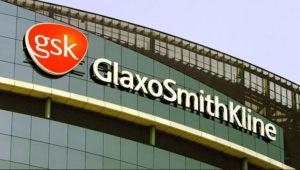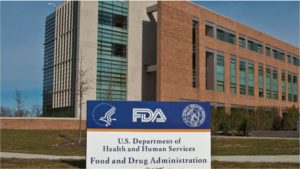- FDA sends stern warning to Glaxo over contamination at a penicillin plant (statnews.com)
GlaxoSmithKline is recalling a "small" number of batches of its Bactroban antibiotic following a harsh rebuke from US regulators about contamination at a key plant. The move comes after the US Food and Drug Administration sent a stern warning letter late last month to the drug maker about a host of quality-control problems at the facility, which is located in...the United Kingdom...The FDA issued its missive...and found what it called "significant deviations" from good manufacturing practices...The FDA...also noted that the drug maker provided an inadequate response, despite having halted production of the antibiotic and recalling product from wholesalers last year...The letter is the latest attempt by the FDA to bolster the viability of the pharmaceutical supply chain amid a rash of quality-control gaffes. The agency has been attempting to crack down on manufacturers and ingredients suppliers — particularly in India and China — in response to various episodes that led to product recalls and import bans...
- Drug maker is warned over missing study about child opioids use (statnews.com)
...one drug maker has failed to provide the Food and Drug Administration with a required study about the effect its powerful painkiller might have on teenagers...At issue is Xartemis XR (oxycodone/acetaminophen), which Mallinckrodt Pharmaceuticals received regulatory approval to sell two years ago. At the time, the company was also required to conduct a so-called post marketing study to determine its safety in youngsters between 12 and 17 years old…as of June 24, the company blew past a March 31 deadline for submitting its pediatric assessment. The drug maker also failed to respond to an April 25 "noncompliance" letter for which the FDA provided a new 45-day deadline to either submit the data or request an extension...The assessment was required under the Pediatric Research Equity Act...What happens if the company fails to comply and submit the data to the FDA? According to federal law, the agency could determine that Xartemis XR is misbranded. That would not lead to a product withdrawal, but the FDA could pursue an injunction or seizure proceedings...
- FDA seeks suspension of 4,402 illegal prescription drug websites (reuters.com)
The U.S. Food and Drug Administration said...along with international authorities, has formally sought to suspend 4,402 websites that illegally sell potentially dangerous, counterfeit or unapproved prescription drugs to U.S. consumers...The move is part of a global effort being led by the INTERPOL...to identify the makers and distributors of illegal prescription drugs...the FDA said it has also issued warning letters to operators of 53 websites that illegally sell unapproved and misbranded prescription drug products to U.S. consumers...Preliminary findings...showed U.S. consumers had purchased certain unapproved drug products from abroad to treat depression, narcolepsy, high cholesterol, glaucoma, and asthma, among other conditions...
- Drug makers pay $67 million for misleading docs about cancer drug survival data (statnews.com)
Two drug makers — Roche’s Genentech and OSI Pharmaceuticals — announced a deal...to pay $67 million to resolve charges they made misleading statements about the effectiveness of the Tarceva drug to treat non-small cell lung cancer...between 2006 and 2011, the companies gave promotional materials to oncologists that included misleading and overstated survival data to influence prescribing. The drug was originally approved by the US Food and Drug Administration as a second-line or back-up treatment, but the inflated data prompted some doctors to use Tarceva as a first choice, which boosted usage...the feds contend the companies violated the False Claims Act, because federal health care programs, such as Medicare and Medicaid, overpaid for the medicine…The infractions came to light thanks to a whistleblower lawsuit that was filed by Brian Shields, a former Tarceva senior product manager. His 2011 lawsuit described an elaborate scheme that was used to bolster Tarceva prescriptions, including kickbacks purportedly paid to physicians...
- Painkiller panel drops experts linked to pharmaceutical industry (financialexpress.com)
One of the experts, Dr. Gregory Terman, said he was dismissed Tuesday afternoon by phone. He said he was told the decision was made because his nonprofit group, the American Pain Society, receives funding from drugmakers...A group advising the Food and Drug Administration on medical issues abruptly dropped four experts from a panel on prescription painkillers after concerns emerged about apparent ties to the pharmaceutical industry...Federal advisers are supposed to be vetted for financial ties that can influence their judgment. Senator Ron Wyden of Oregon sent a letter Friday to the academies’ leadership noting that two of the panel nominees had also served in professional societies that receive funding from drugmakers. Wyden has protested industry influence on federal expert panels before.
- AstraZeneca sues FDA to prevent generic versions of Crestor (statnews.com)
Drug makers generally don’t complain when regulators widen the market for their medicines. But AstraZeneca filed a lawsuit...claiming the Food and Drug Administration is on the verge of illegally broadening the indication for its best-selling Crestor cholesterol pill, and the move would unfairly allow generic competition...The argument, which the company also made late last month in a citizen’s petition, hinges on the interpretation of federal law governing product labeling. Depending upon the outcome, AstraZeneca may either maintain a monopoly on Crestor for another seven years or face lower-cost rivals to a key revenue stream when the Crestor patent expires on July 8...the drug maker won FDA approval to sell Crestor to treat children with a rare genetic disorder called homozygous familial hypercholesterolemia...Under the Orphan Drug Act, the company was awarded an additional seven years of marketing exclusivity for Crestor, but only for treating this particular rare...disease...Several generic companies are lined up to sell a version of Crestor. AstraZeneca argues that a generic must include all pediatric labeling information approved for the corresponding brand-name drug. The company filed its lawsuit over concerns that the FDA will, instead, rely on a decision it made last year allowing generic companies to exclude certain information, so long as a safety risk is not created...AstraZeneca...believes federal law entitles the company to an additional exclusivity period of seven years for Crestor in the US...the American Journal of Clinical Oncology, a team of researchers argued that drug makers are exploiting loopholes in the Orphan Drug Act that allow them to widen the market for such drugs and distorting the original purpose of the law.
- Troubled Teva plant in Hungary faces an FDA crackdown (statnews.com)
The latest broken link in the pharmaceutical supply chain has appeared in Hungary, where Teva Pharmaceuticals has suspended production at a plant following a crackdown by the US Food and Drug Administration...The drug maker voluntarily halted work at its Godollo facility, which makes sterile injectable medicines, as "a precautionary measure" shortly after FDA inspectors visited last January...The company is "working around the clock to restart manufacturing operations as soon as possible,"...The shutdown only came to light after Hungarian regulators late last week issued a notice in an attempt to address concerns about drug shortages...The disclosure by Hungary’s National Institute of Pharmacy...came several days after the FDA also issued a so-called import alert, which is a notice about products that are banned from entering the United States. The FDA alert cites issues with good manufacturing practices, a regulatory term for minimum standards, but specific problems were not disclosed...the episode underscores the ongoing challenges that even the largest drug makers face in maintaining their plants...
- FDA defines the ability of compounders to make approved medicines (statnews.com)
In its latest (to) bid to set parameters around compounding, the US Food and Drug Administration...issued a pair of draft guidelines to clarify when compounding pharmacies are permitted to make versions of commercially available medicines...federal law currently states that a compounder generally shouldn’t make copies of drugs that are approved for sale, the agency is getting more specific and wants to ensure that a true clinical need exists before a compounded version of an approved medicine drug is made for a patient...A key issue has been the extent to which compounders can make medicines for patients in ways that may cross the line into more conventional drug manufacturing. The new law attempts to create boundaries, although the latest guidelines are designed to refine the FDA interpretation... the guidelines would permit compounders to make versions of brand-name drugs when a shortage exists or the brand-name medicine has been discontinued. Another example meeting the threshold of patient need might be a required change in formulation...But safety is not the only issue in play here. For instance, pointing to a lower price...a compounded version would be cheaper than a brand-name drug — is not justification for compounding an FDA-approved medicine...these are only draft guidelines — guidances in regulatory parlance — and are not set in stone.
- Brexit spells upheaval for EU and UK drug regulation (reuters.com)
Britain's vote to leave the European Union spells regulatory uncertainty for drug companies, with the London-based European Medicines Agency, which approves treatments for all EU countries, expected to have to relocate...The association of Germany's pharmaceuticals industry said on Friday that Europe's equivalent of the U.S. Food and Drug Administration would need to move to a city within the EU...EMA...said it was premature to comment on its future...It is too early to foresee the implications of this decision and at this stage we are waiting for further guidance from the European Commission...Drug companies and healthcare officials in Sweden, Denmark, Italy and Germany have all expressed interest in hosting the EMA instead of London, since firms in these countries are keen to be located close to the region's...The pharmaceuticals industry employs more than 70,000 people in the UK and accounts for 25 percent of all business research and development spending in the country...Many scientists are concerned that funding for academic research, which has been well supported by the EU in recent decades, will now be jeopardized, along with important UK-European research collaborations...
- Hope for Sarepta drug approval? FDA requests more data (statnews.com)
In the latest twist surrounding Sarepta Therapeutics and its rare disease drug (eteplirsen), the Food and Drug Administration has asked the company to provide additional data to review, a move some see as a sign that the agency is looking for ways to approve the treatment. Shares in Sarepta...jumped more than 25 percent...The request comes amid ongoing uncertainty over the fate of a medicine being developed to combat Duchenne muscular dystrophy, which destroys muscle fibers and eventually confines boys to wheelchairs before sending them to an early death...The controversy increasingly resembles the fracas over HIV drugs three decades ago...the FDA appears caught between its mandate to adhere to scientific standards for approving medicines and finding ways to appease the public and authorize treatments for unmet medical needs.










